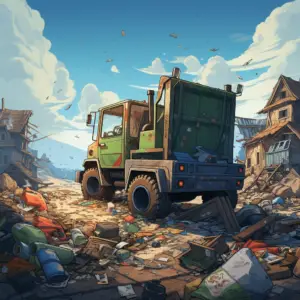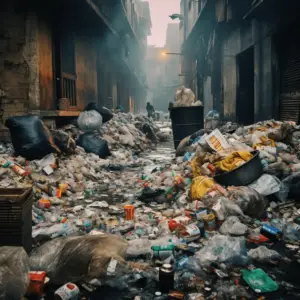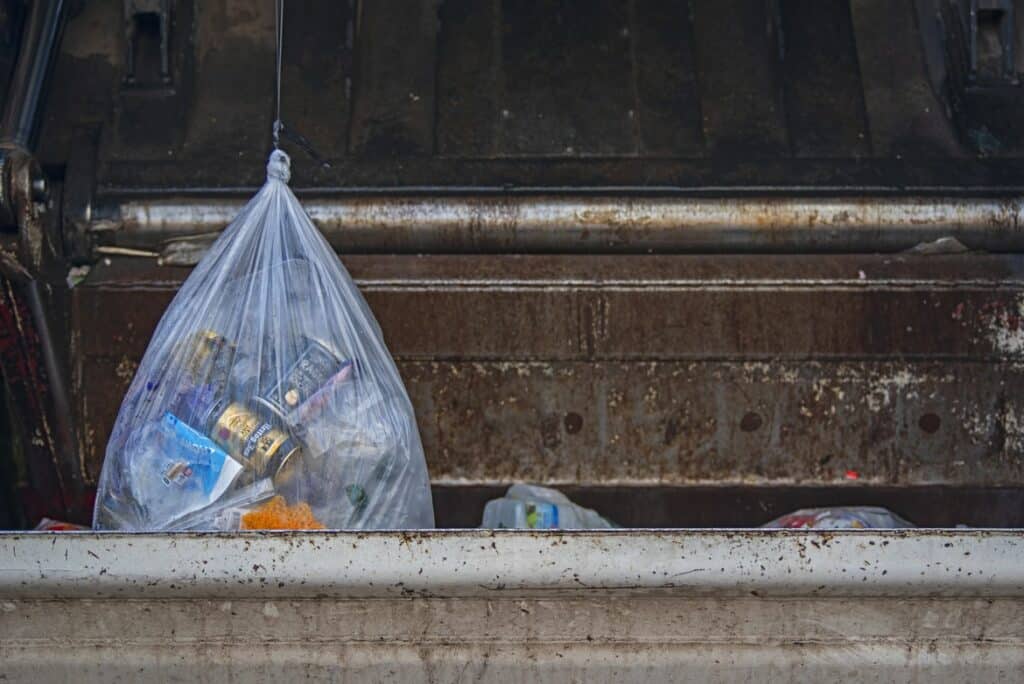Disposal strategies, We all abhor dealing with trash! Perhaps it is the repugnant smell or the dead weight of previously useful stuff.
Whatever the reason, dealing with trash is a redundant repetitive chore any of us would love to be exempted from indefinitely.
Nonetheless, we generate a copious amount each day and invariably more now than ever, with the ever-growing consumer culture we have adopted in modern times. Just about every activity leaves a piece of rubbish in its execution.
Probably the most irritating part of dealing with trash is that the garbage bag must eventually fill up and you must haul the full trash bag out of your home or workplace and rid your space of the mess.
Table of Contents
Handling Garbage

The best way to deal with trash is to make a habit of separating it according to the specifications provided by your garbage collectors.
While most people do not bother to do this, it really helps in managing your trash and serves to avoid unnecessarily many trips to the garbage can.
If you separate trash accordingly, your bags will undoubtedly fill up slower and be less cumbersome to carry outside. Separating trash also makes it easier for garbage to be sorted correctly and disposed of in the right way. Color codes for trash are as follows:
- Black bags are for non-infectious, non-biodegradable refuse such as wrapping papers, empty bottles, soda cans, used tea bags, stationery items etcetera.
- Green bags are for biodegradable waste such as leftover food and fruit. Anything that belongs in a compost pit should go here.
- Blue bags should have recyclable waste. Anything that has the recycling label on it should be put in blue bags. These include bottles and certain plastics.
- Red bags are provided to hospitals and health centers. Potentially hazardous and infectious medical paraphernalia that has come into contact with blood and other bodily fluids are put in red bags and there are specific protocols for disposal of this kind of waste.
- Yellow bags are used in disposing of dangerous materials such as infectious cultures and substances, cans and glass that had dangerous chemicals, and biohazardous material. Yellow bags mean a higher level of care is needed in disposing of the trash.
- Clear bags are mostly used for paper in office setups.
- White bags are used in bathrooms and kitchens.
Ensure all garbage goes in the corresponding trash bag for effective handling of the trash.
Where should you store full garbage bags?
Garbage disposal is ultimately the responsibility of the government although many times private companies have to be subcontracted due to the sheer scale of the work involved in refuse management.
The garbage collectors generally provide this service in one way or the other by designating specific days for garbage collection, having garbage bins in specific places, some may provide the garbage bags for their customers, transporting the garbage in landfills, and incinerating medical and industrial waste.
- Use the garbage bins provided by the garbage collection companies.
- Place the right colored bag in the corresponding garbage bin since they are clearly labeled.
- If there are no garbage bins, keep full trash bags outside by the curb and on the outside of your gate to allow the collectors quick and convenient collection.
- If you live in an apartment building, use the trash shoot to dispose of your full garbage bags.
- Tie full trash bags securely to avoid spills and rummaging by pets, animals, and children.
- If you are using a trash shoot, it is especially important to tie full trash bags securely to avoid spills. Some trash collection areas at the back of apartment buildings readily become unbearable smelly dumpsites because tenants do not dispose of trash properly.
- Red and yellow garbage bags must be put in the designated garbage bins and handled only by personnel assigned to this job.
- Red and yellow bags must not be placed outside or where the public can access them.
Things to remember when dealing with garbage
- Keep full garbage bags away from water. Disposal strategies gets into the garbage, decomposition will accelerate making your trash a cesspool for bacterial, germs, insects, and pests not to mention the putrid smell that will invade your home.
You will be in danger of collecting infections from the trash once you handle it. Disposal strategies have a well, for instance, keep full trash bags away from the general vicinity of that well to avoid accidentally contaminating the water.
- Do not fill green bags to the brim. Carrying full green bags is troublesome enough but when full to the brim storing them awaiting collection breeds more problems. The decomposing garbage may swell and since rotting produces both sludge and gases, it is better to leave room to accommodate this.
Dealing with garbage

This will prevent collectors from having to deal with bloating garbage bags or accidentally splitting garbage bags during collection leaving you with a mess to clean on your driveway.
- Keep full garbage bags away from children and their play areas such as the yard or the lawn. Children can find their way into anything and garbage is particularly attractive to kids. To keep children and pets safe, keep full garbage bags away from their play areas and out of their sight.
- Do not pile full trash bags on balconies and verandahs. Keeping full garbage bags in any part of the house is ill-advised. Despite this, the practice of storing garbage bags on balconies is fairly common and does considerable damage to property value.
The sludge from the trash makes its way out of the bags and stains floors leaving unsightly discoloration that needs repair. The smell only gets worse with time since the garbage decomposes but has no soil or earth to absorb Disposal strategies.
Pests and vermin become a problem and cleaning up the mess once the situation becomes unbearable is a tedious vexing job that can be avoided by storing garbage in the right place, to begin with.
The is also the ever-present danger of contracting diseases and infections. Follow these simple guidelines and garbage handling will not be such a dreadful chore anymore.


